World-level Open-Source AnonymousProtocol
iPhone and Android compatibility developed by experts from all over the world
100% compliant with the European specifications
The protocol
High level description
Covid Community Alert is a worldwide open-source standard proposed by a global team to provide a service that allows the monitoring of interactions among devices in a totally anonymous way. We can notify people at risk by sending them a clear set of instructions. This will reduce the number of infected patients and allow them to receive their treatments as soon as possible.
The interoperability among countries is essential to protect people after the quarantine ends.
People from all over the world will travel from one country to another and we must be able to create a global protocol that can adapt to all the different scenarios that we could face: in the United States the iPhone market share is greater than 50% and most of the solutions on the market do not work for iOS.
The open source implementation of the proposed standard is already complete with the entire stack:
- Infrastructure
- Backend
- Roaming protocoll
- iPhone and Android user application (CovidApp)
- iPhone and Android medical application (CoviDoc)
- Internal dashboard for virologists
We also provide the open-source code and support to distribute the infrastructure on servers owned by each country.
Every open source component - as well as the rules and messages established by virologists to identify people at risk - can be modified and adapted to the different regulations or use cases that may differ from country to country.
One of the main advantages of the protocol is compatibility with iPhone and Android devices, which allows 38% of additional anonymous monitoring compared to traditional Bluetooth solutions.
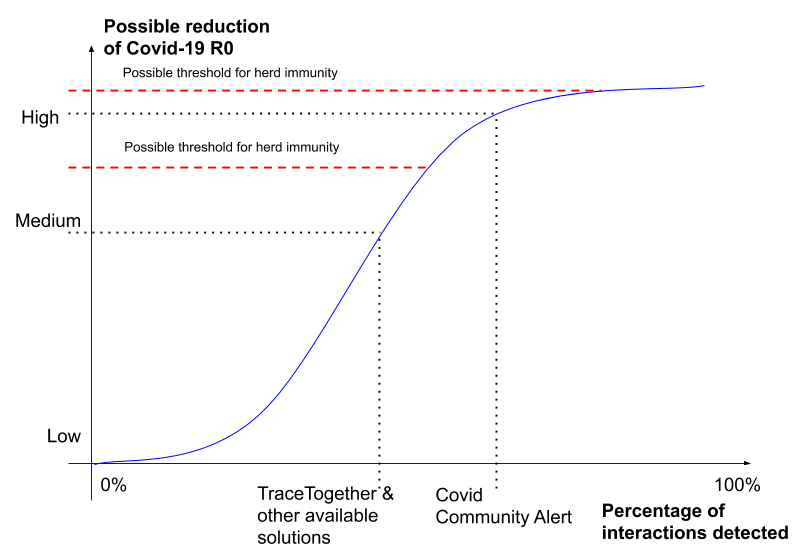
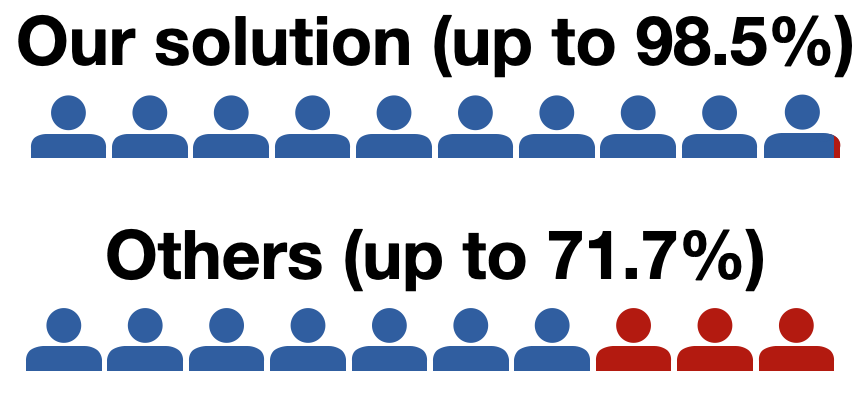
Coverage
Our technology can anonymously monitor from 91.2% to 98.5% of all mobile interactions (iPhone and Android), compared to 71.7% of traditional technologies.
A linear reduction of Covid-19 R0, due to the greater number of anonymously intercepted interactions, has an exponential impact on the reduction of the spread of the virus.

Roaming
The open-source protocol supports the interoperability among the nations that will implement it, managing this way global scenarios.
We give the possibility directly to selected expert virologists to establish the rules and notifications to be sent to patients, country by country.
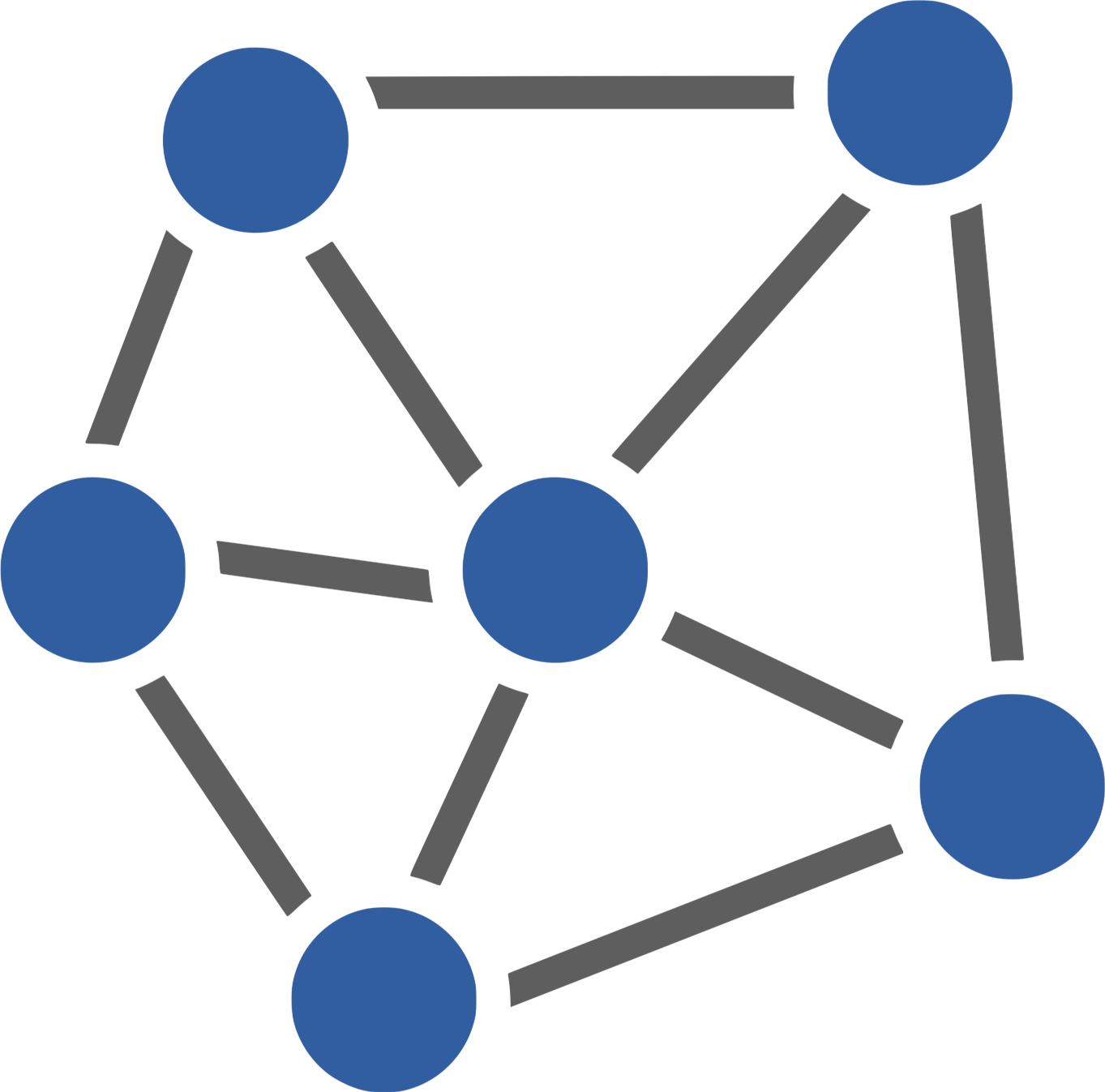
Speed of reaction
We can automatically contact up to N degrees of connection of a positive diagnosed user. In addition, the notification can be sent directly from the laboratories where the swab is analyzed.
Our platform also identifies patients who do not exhibit symptoms.
About us
The Coronavirus Outbreak Control team consists of 35 people volunteering from four continents.
The team has a multidisciplinary background: over 10 years of experience in distributed architectures and mission critical softwares. In the past the majority of the team has built worldwide solutions for international partners, such as Airbnb, Google and Microsoft.
Projects
Our protocol has been identified as a backbone on top of which other projects can be built, including:
Study of virus expansion
By collecting anonymous data, it will be possible to estimate more accurately the expansion of the virus.
SafeTogether
Shielding of vulnerable people
We are integrating projects for the protection of the people who are most vulnerable (immunosuppressed, elderly, people with pathologies, etc.), qualifying immune people in order to create a human chain of support for these categories.
Quarantine control
Researchers have implemented GDPR compliant systems that allow the quarantine control of infected people.
Genetic evolution
Our team in Brazil is adding to the open-source project the possibility for doctors to add details of genetic information on the virus detected in patients, in order to study its evolution over time and its geographical spread, as well as how its genetic characteristics influence different types of people.
The anonymous collected data can be used to obtain a better approximation of the real parameters that characterize the evolution and spread of the virus.
IoT for densely populated locations
We are collaborating with researchers to create a protocol which can be implemented on IoT devices to improve the signal sampling, while maintaining anonymity.
Roadmap
-
February 15th 2020
Team set up -
March 18th 2020
Start of collaboration with the CNR and the research team in Brazil -
April 2nd 2020
Publication of the open-source protocol implementation -
April 7th 2020
Technical and privacy review with the Italian government -
April 8th 2020
Demo with the Brazilian Ministry of Health -
Today
Awaiting of approval from the Italian government
100% Anonymous and Open Source
Our system relies only on the anonymous IDs generated by our service, that in no way can be used to obtain personal data.
Moreover:
- DOESN'T need any login.
- DOESN'T collect any private or sensible data, such as name, surname, mobile number.
- DOESN'T need to track users' GPS positions.
- DOESN'T store any IP-related information.
All the produced code necessary for the functioning of the service is open source and available online for review: Coronavirus Outbreak Control

Our solution
Our apps are localised in English, Italian and Portuguese and we are currently translating it in the 10 most spoken languages to facilitate its adoption.
CovidApp
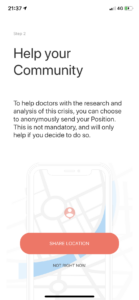
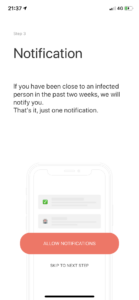
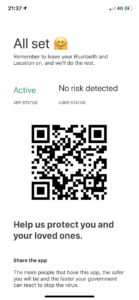

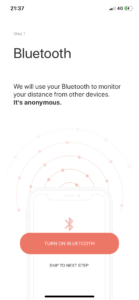
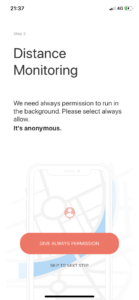






CoviDoc
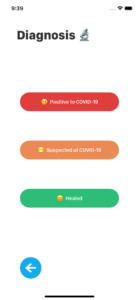
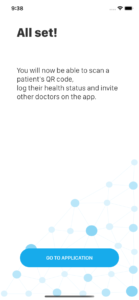
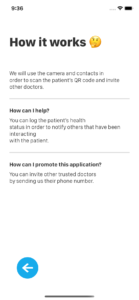



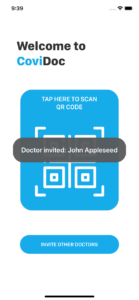






Internal dashboard for virologists
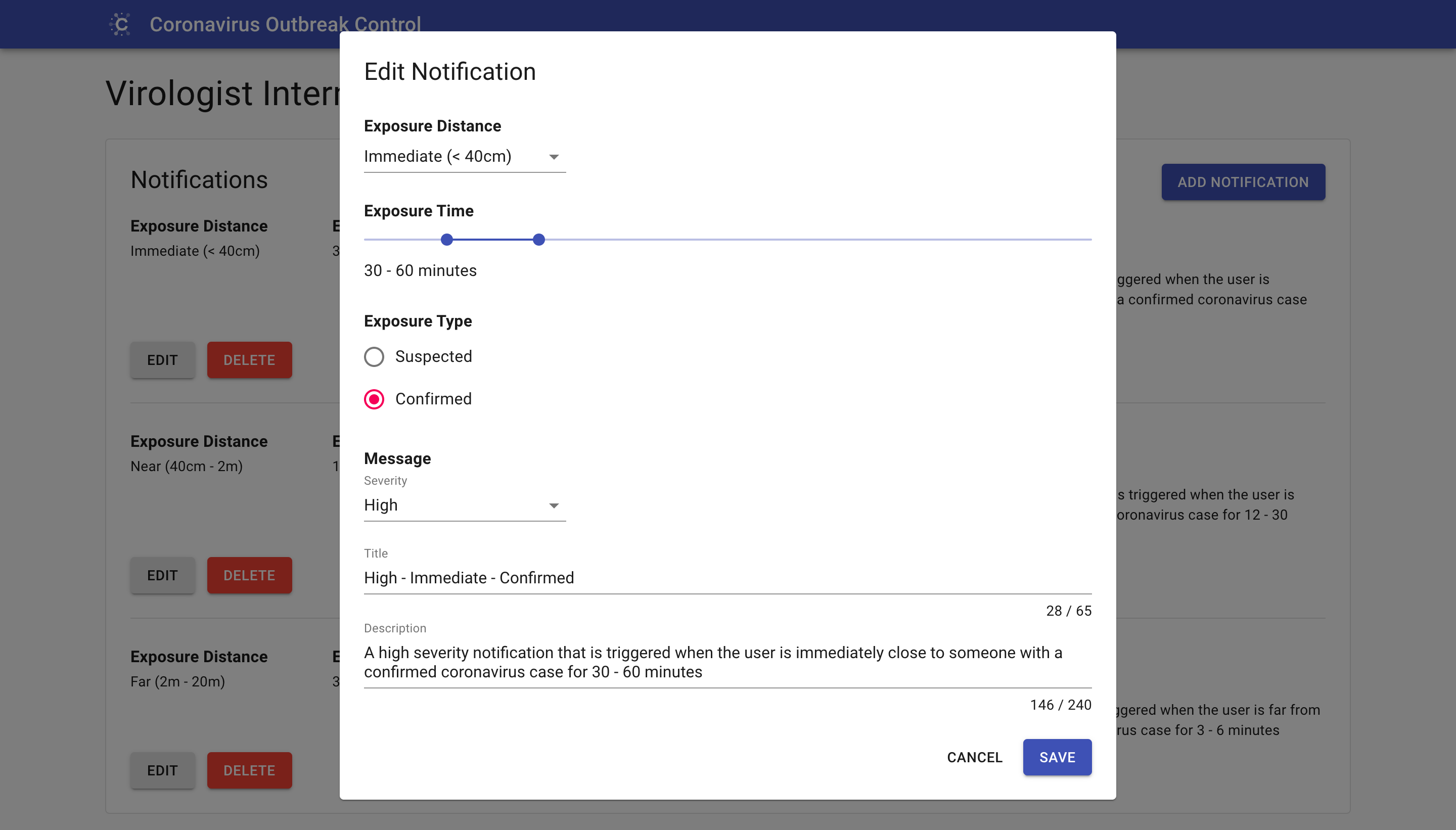
We collaborate with recognised Health Institutions and Research Centers
We are working very closely with the most recognised Health Institutions to distribute the service worldwide.
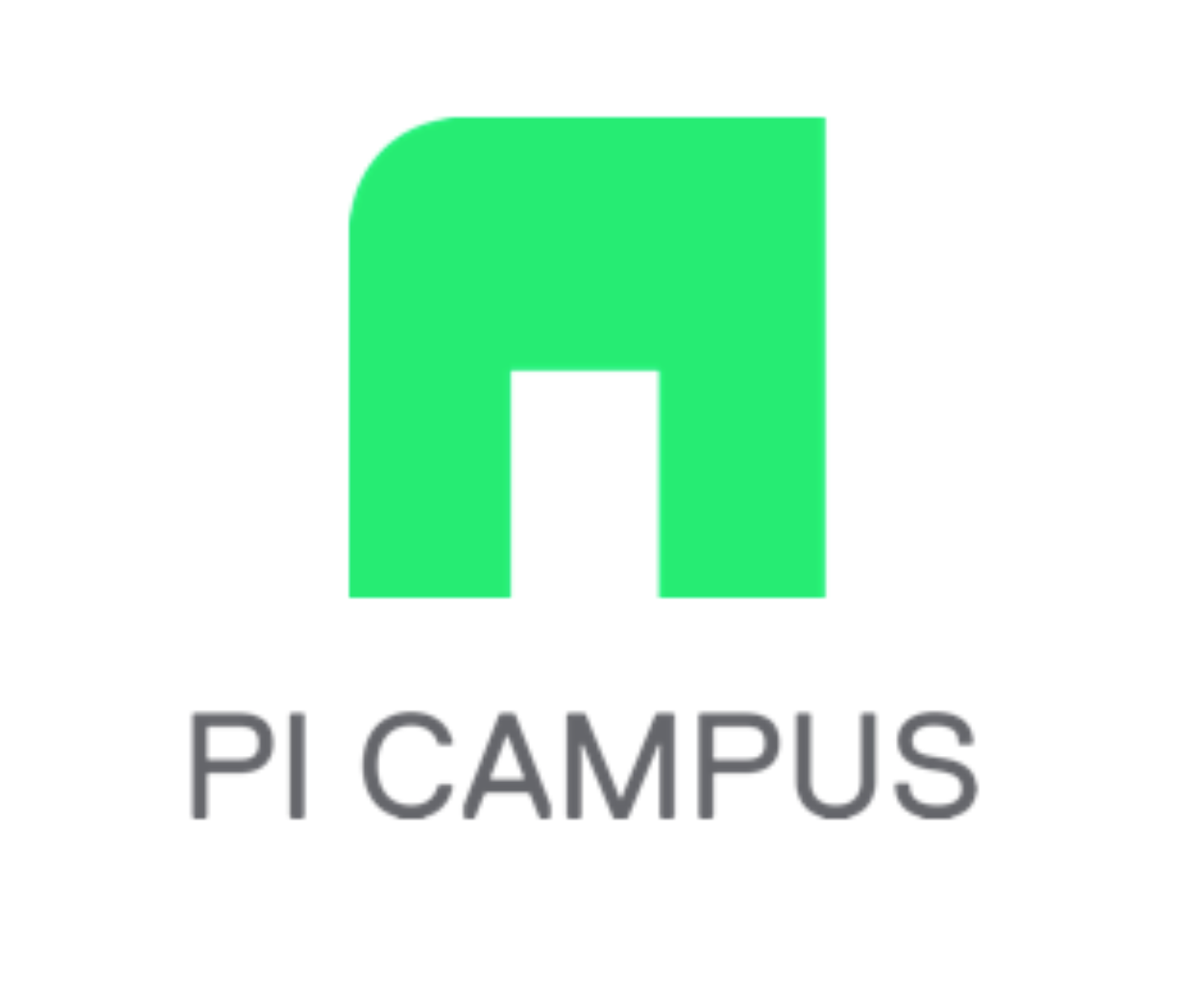

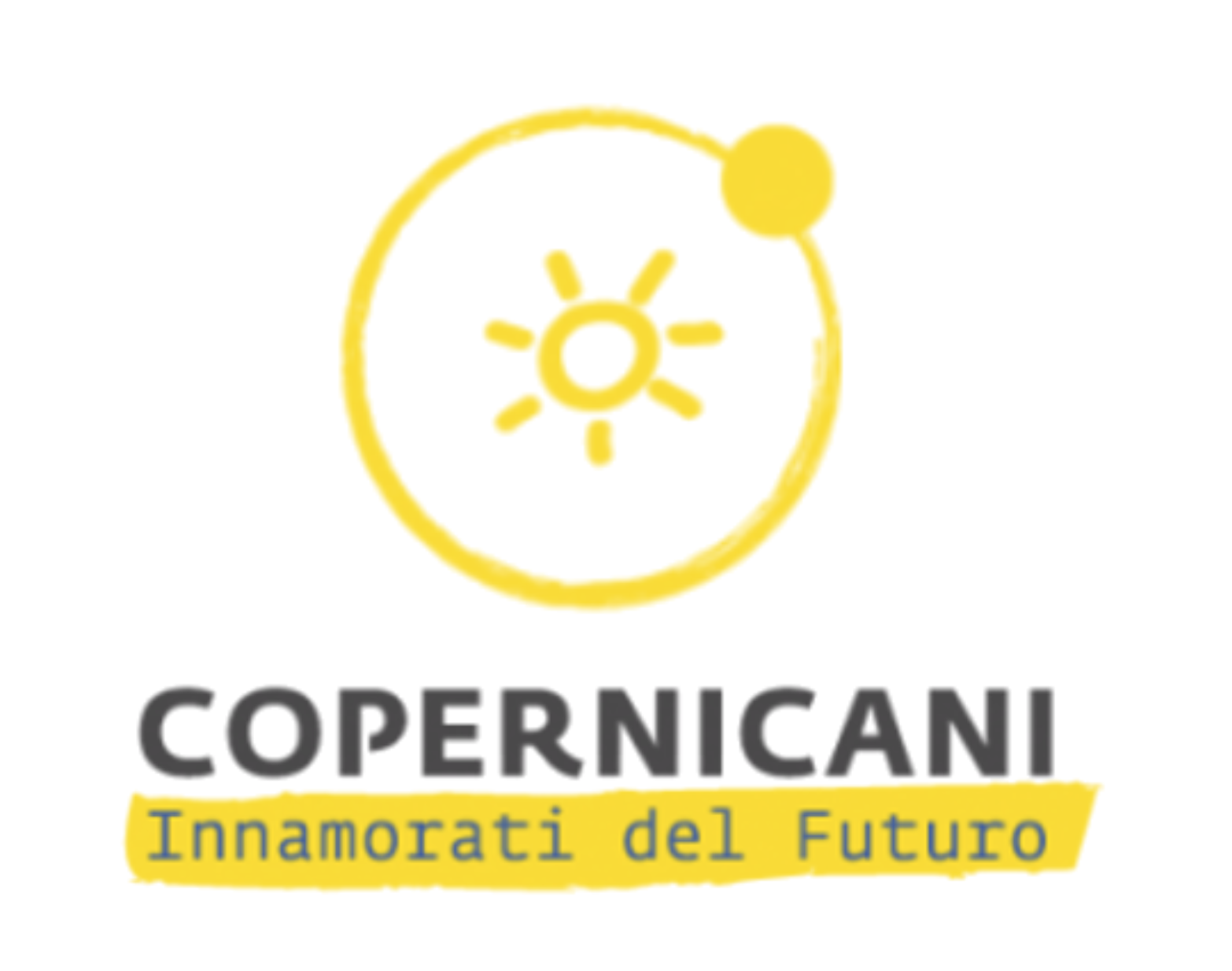
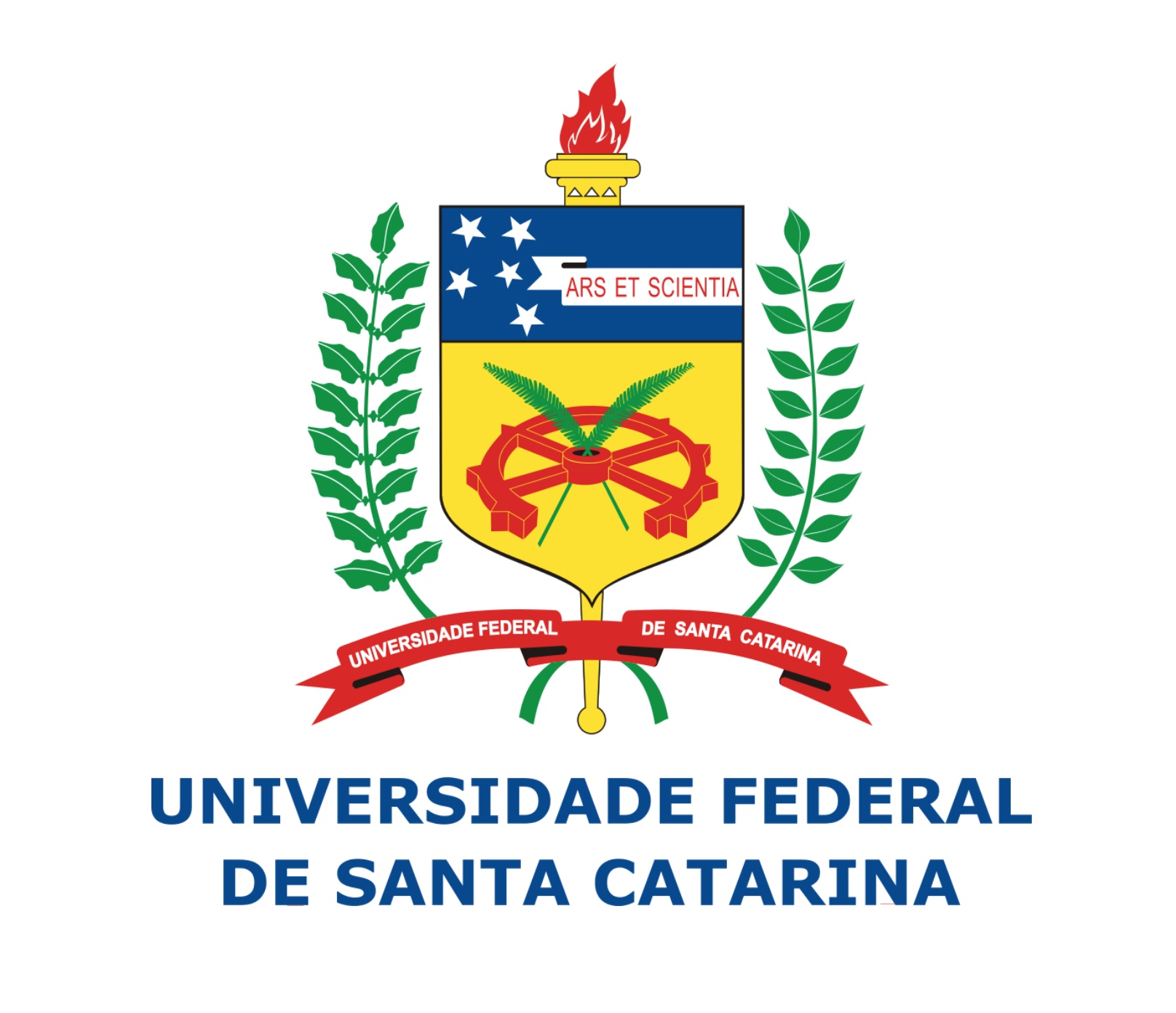


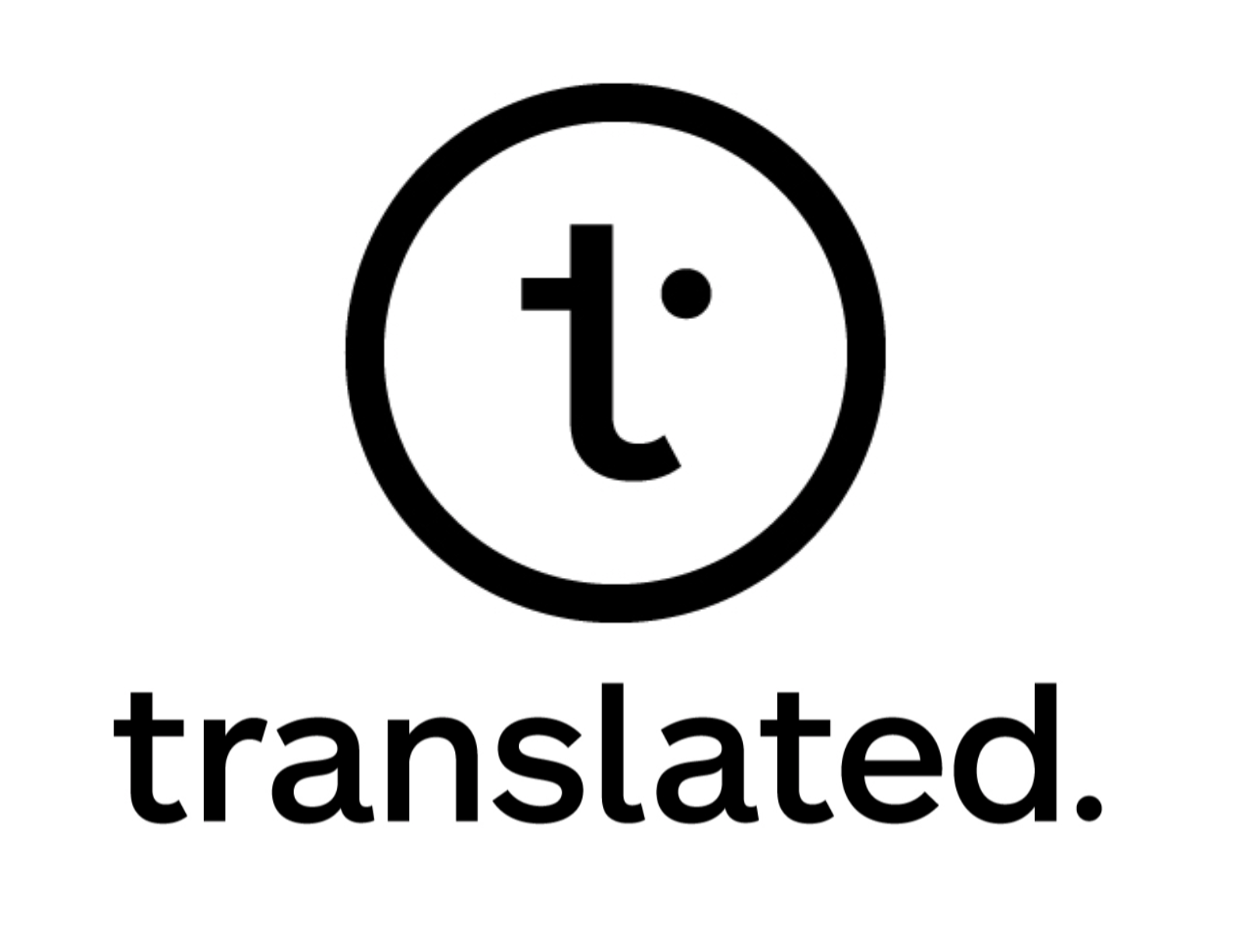
We collaborate with:
-
Bhaskar Krishnamachari, director of USC Viterbi Center for Cyber-Physical Systems and the IOT and professor of Electrical Engineering and Computer Science Professor in the University of Southern California, LA
-
Raffaele Perego, Director of Research, ISTI-CNR
-
Vania Bogorny, Head of the Computer Science Graduate Program at Universidade Federal de Santa Catarina (UFSC) – Brazil
-
Stefano Leonardi, Full Professor at Sapienza University of Rome
-
Giuseppe Attardi, Full Professor of Computer Science, Università di Pisa, Italy
-
Davide De Nardis, R&D Manager, Becar srl
-
Fabio Cassanelli & Emanuele Bartoli - Cyber Security specialist at Be Shaping the Future
-
Enrico Fagnoni - CEO at LinkedData.Center
We are supported by:
-
Associazione Copernicani – mentor: Stefano Quintarelli – Member of the AI High Level Expert Group at European Commission and Chairman of the steering Committee of Agenzia per l’Italia Digitale (AGID)
-
Marco Trombetti, founder at Pi-Campus
-
Oreste Pollicino, Director of Bocconi LL.M. in Law of Internet Technology and full professor of Constitutional Law at Università Bocconi
-
Stefano Fratepietro, Group Head of Cybersecurity – Chief Security Officer at Be Think, Solve, Execute S.p.A.
-
Sébastien Bratières, Director of AI, Translated
-
Sebastian Filetti, STITCH (Sapienza information-based Technology InnovaTion Center for Health)
Many others are supporting this solutions that, while protecting the citizens, doesn't compromise their privacy.
